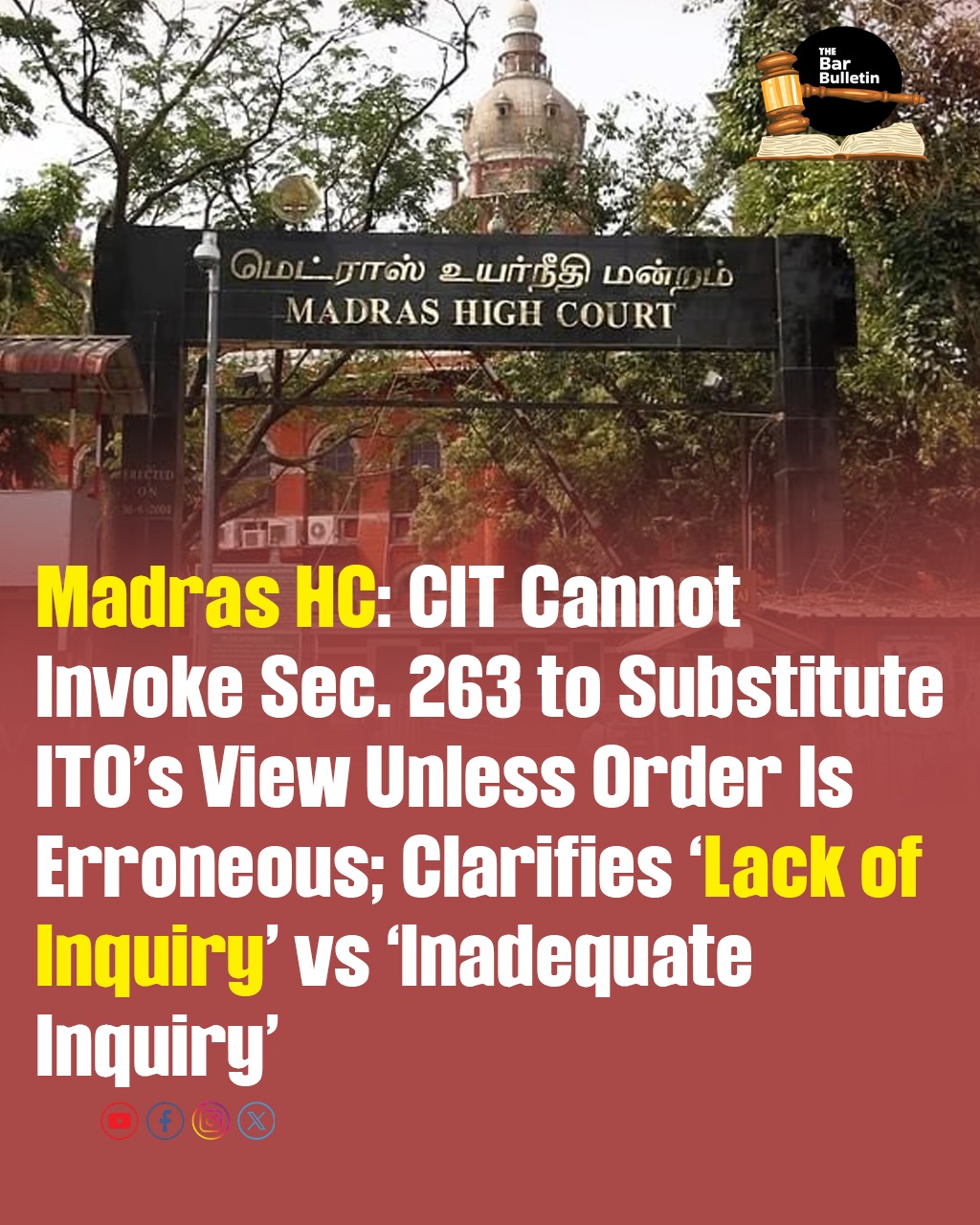The Madras High Court ruled that an order cannot be termed as erroneous unless it is not in accordance with law, and if the Income Tax Officer, acting in accordance with law, makes certain assessment, the same cannot be branded as erroneous by the Commissioner, simply because, according to the Commissioner, the order should have been written more elaborately. The Court clarified that Section 263 does not visualize a case of substitution of the judgment of the Commissioner or that of the Income Tax Officer, who passed the order, unless the decision is held to be erroneous.
The Court added that there must be some prima facie material on record to show that the tax which was lawfully eligible has not been imposed or that by wrong application of the relevant statute on an incorrect or incomplete interpretation, a lesser tax than what was just has been imposed. Since the facts of the present case do not show any case of violation of provisions of law, warranting inference with the order drawn by the AO, the Court allowed the appeal in favour of the taxpayer.
While pointing out that the present case is not classifiable as a case of “lack of inquiry”, the Division Bench comprising Chief Justice Manindra Mohan Shrivastava and Justice Sunder Mohan observed that once there is an inquiry, even inadequate, that would not by itself, give occasion to the Commissioner to pass order under Section 263 of the Income Tax Act merely because he has a different opinion in the matter. The Bench clarified that such a difference of opinion cannot be said to be a case of erroneous order and prejudicial to the interest of the Revenue.
The Bench found that, based on the requisite material collected during inquiry, the AO drew an inference that the building was being used for business purposes, and accordingly, the AO was of the view that even though no depreciation was claimed, it is deemed that depreciation for that building, which was used for business purpose should be computed and allowed in respective previous years itself.
Briefly, in this case, the Appellant partnership firm, claiming to be engaged in the manufacture and sale of kitchen utensils, filed its return declaring NIL income. Later, pursuant to a search carried out in the business premises of Sivamurugan Chit Funds Group concerns as well as the business premises of the Appellant firm, the AO rejected the claim of depreciation on the building used for business purposes and held that the sale value of the old building cannot be reduced from the cost of construction of the new building, and the depreciation was allowed on the cost of the new building, without reducing the sale consideration of the old building. Further, the AO taxed the profit from the sale of the old building under the head, “Capital Gains” at Rs. 12.88 lacs. Additionally, the AO restricted the allowable depreciation to Rs. 3.54 lacs, being 10% of the total WDV, and disallowed the excess claim.
The Commissioner of Income Tax, however, invoked his jurisdiction under Section 263 on the ground that the difference in the cost of construction of the property between the claim of the Appellant and the Department valuation was not considered, and further, that long-term capital gain on the sale of the old building was not considered.
Cases Relied On:
Commissioner of Income Tax vs. Sunbeam Auto Ltd., [2010] 189 Taxman 436 (Delhi)
Commissioner of Income Tax vs. Gabriel India Ltd. [1993] 203 ITR 108/71 Taxman 585 (Bombay)
Appearances:
Advocates I. Dinesh and Philip George, for the Appellant
Advocate J. Narayanaswamy, for the Respondent

